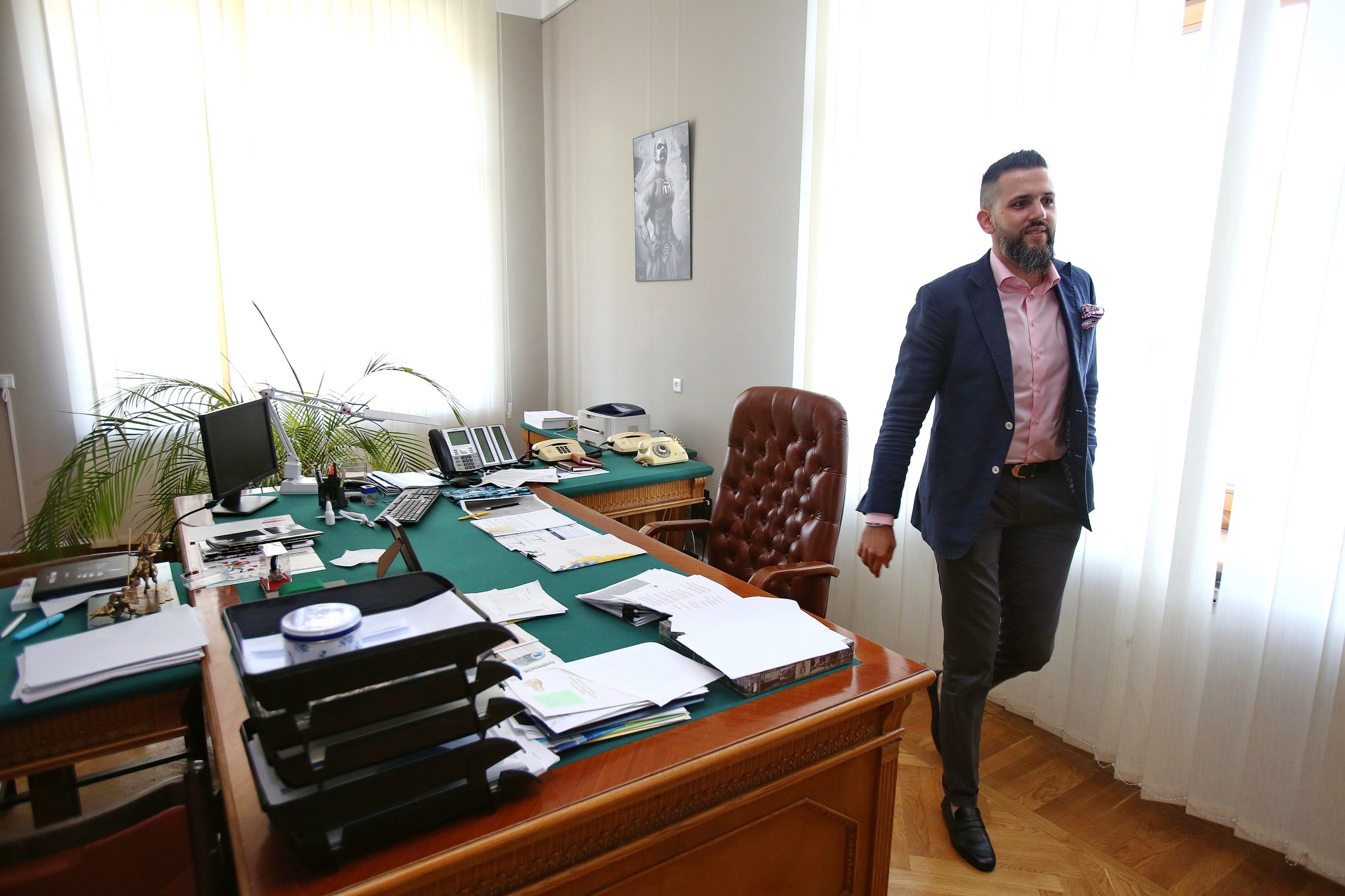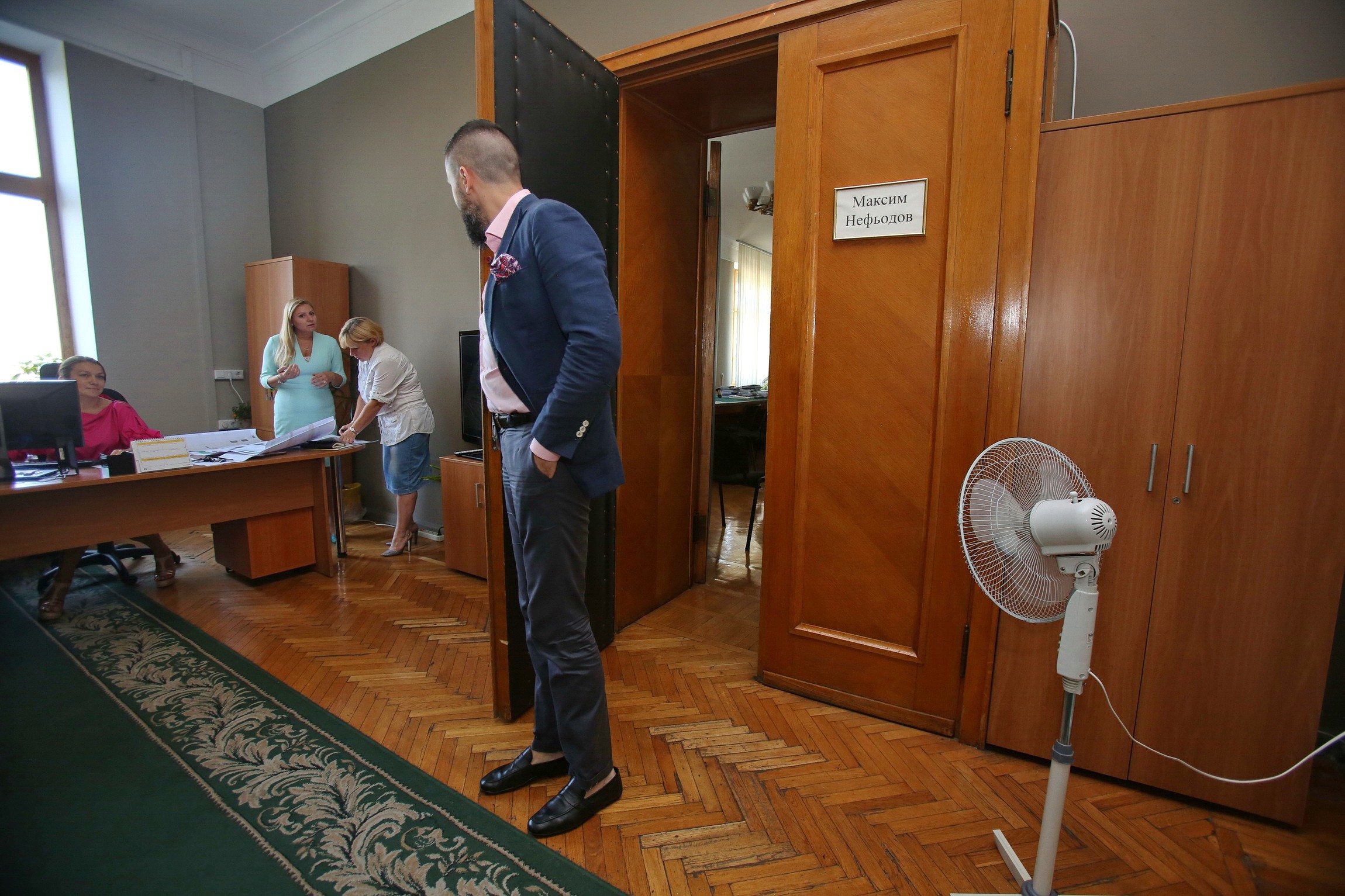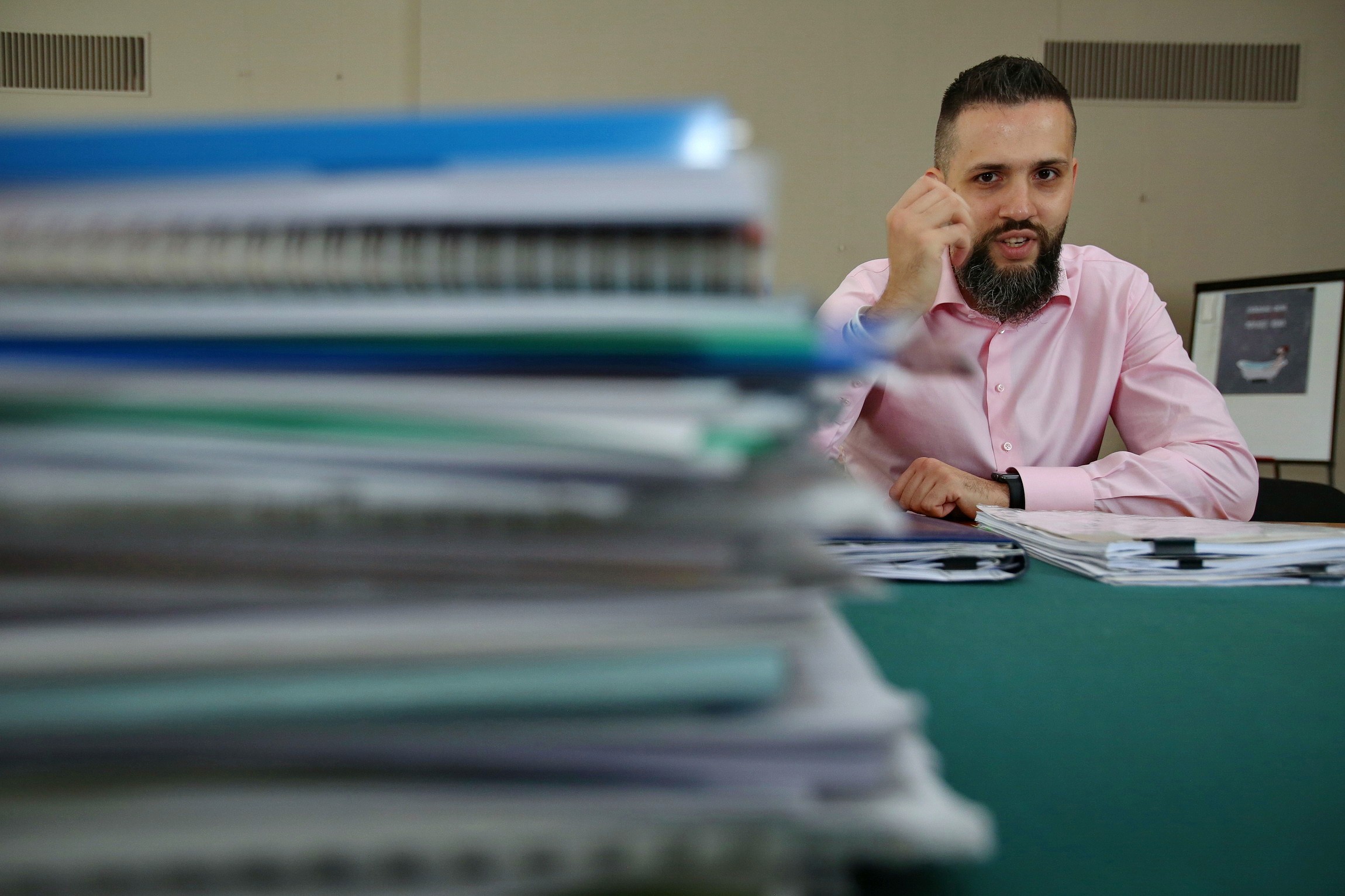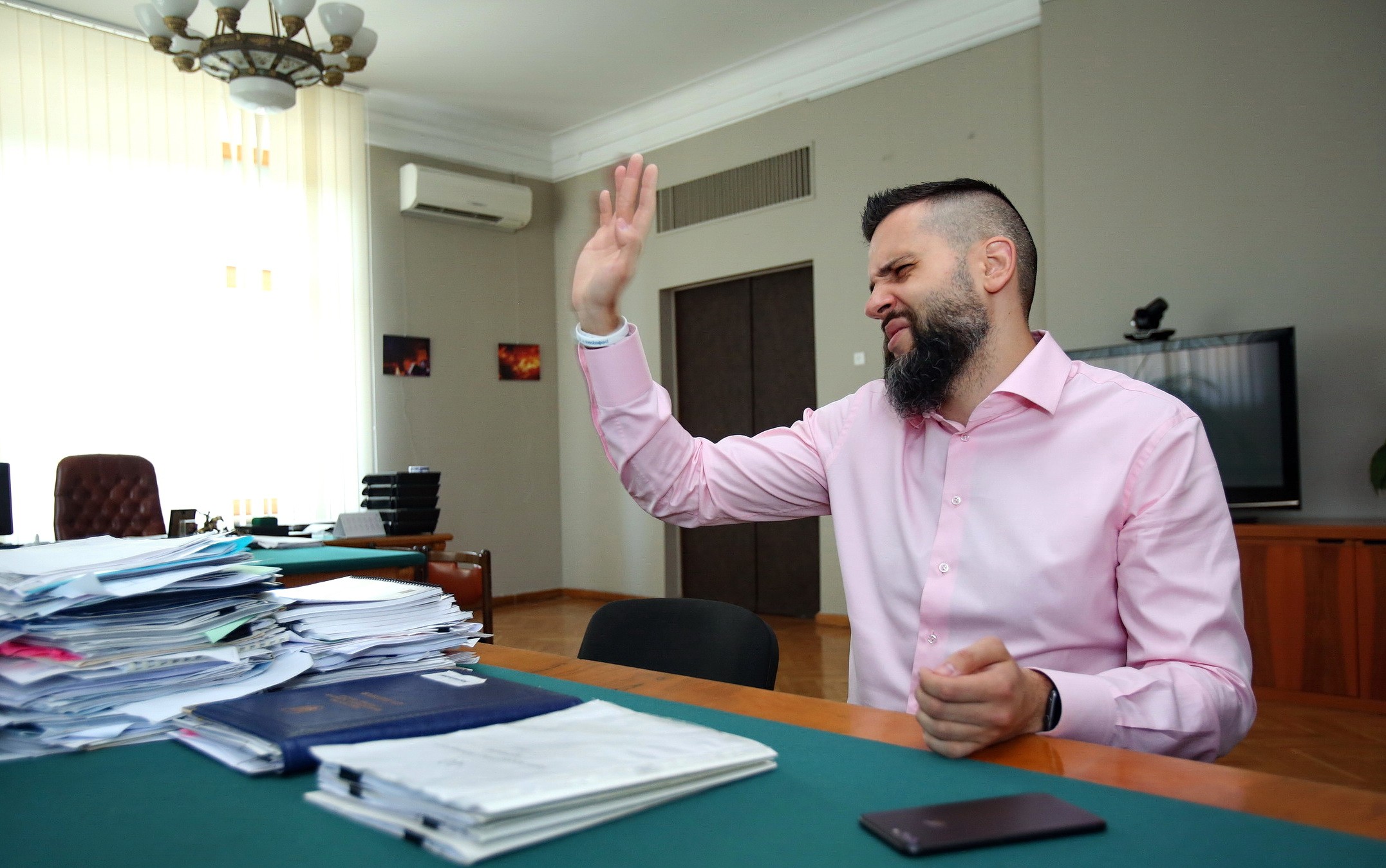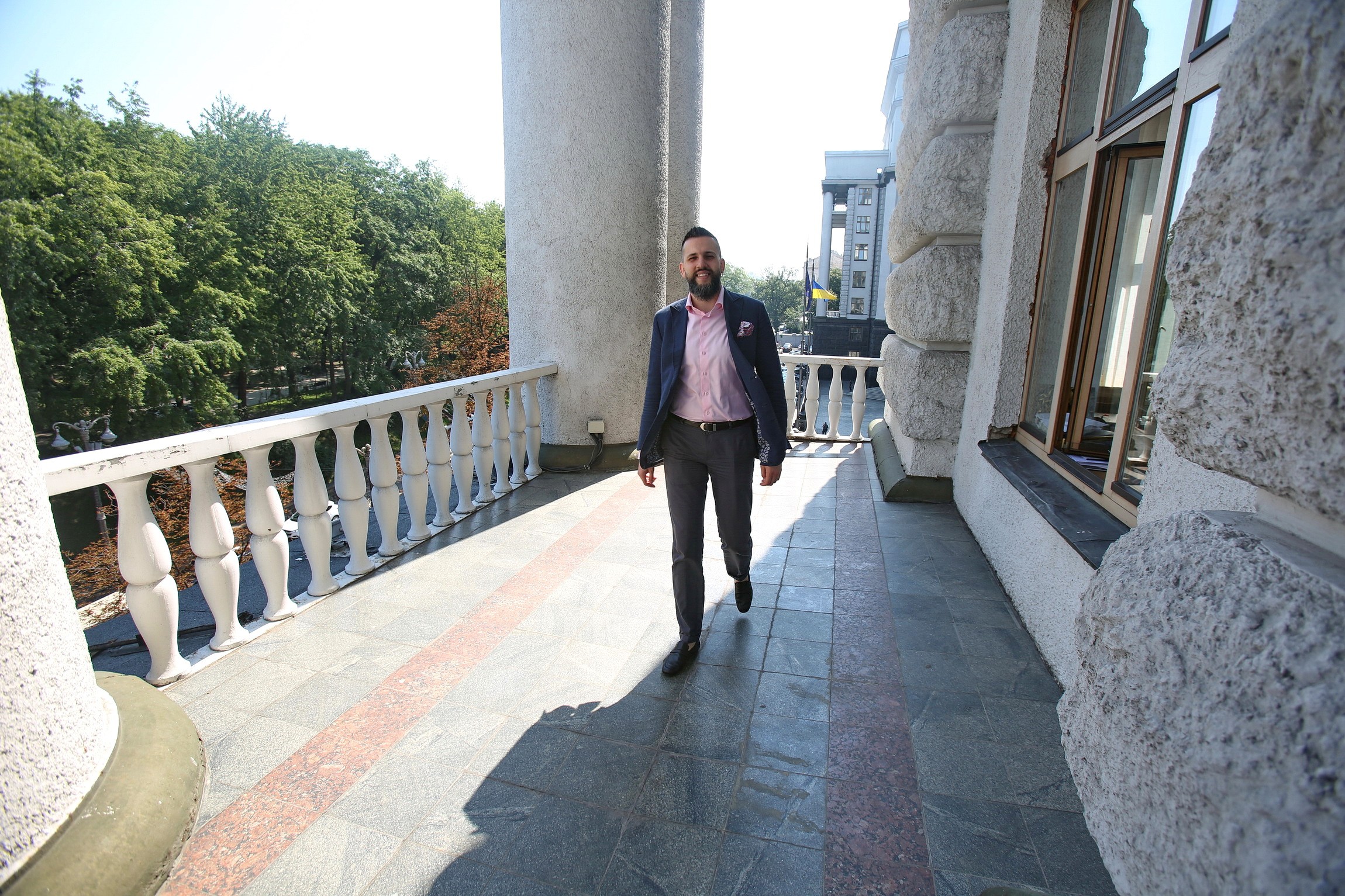Max Nefyodov might be the most admired senior public official in Ukraine at the moment.
The 33-year-old first deputy economy minister and former investment banking prodigy is credited as a leader in launching the ProZorro platform, making government purchases more transparent and saving taxpayers Hr 23 billion, or $894 million.
Nefyodov is also popular with the press and often shines at Cabinet of Ministers meetings and foreign events.
He is also one of the few survivors among a cadre of reformers who came to public service after the EuroMaidan Revolution prompted President Viktor Yanukovych to flee power on Feb. 22, 2014.
One by one, many reformers have been squeezed out of office, complaining of political pressure and corruption around them.
Nefyodov says he sees neither pressure nor corruption.
Maybe that is one reason why he’s been able to stay in government for two-and-a-half years, amid changing prime ministers and economy ministers.
One of those who quit was Nefyodov’s former boss, ex-Economy Minister Aivaras Abromavicius, who left in February 2016 after calling out President Petro Poroshenko’s ally, lawmaker Ihor Kononenko, for corruption and putting pressure on him to appoint a loyalist as a key deputy.
Kononenko denied the charges.
Nefyodov thinks his position is protected by the popularity of his work, especially ProZorro, one of the government’s most showcased achievements.
“My reforms are relatively popular because they are easy to explain to people,” Nefyodov says. “No one can really say they’re against transparent procurement. That would be bad publicity.”
That has made it easy for him to keep working under the current economy minister, Stepan Kubiv and Prime Minister Volodymyr Groysman, who took over after Arseniy Yatsenyuk was forced out in April 2016.
Unlikely fit
Even after two years, Nefyodov stands out from most other people in public service.
It begins with his decidedly sartorial look: a bespoke suit, the proud absence of a tie and socks, a hipsterish undercut hairstyle, and a gray-streaked beard.
He blames the gray on stress, but won’t go into detail about its causes. He speaks carefully and complains little, another reason why he’s probably still in government service.
Nefyodov, a former managing partner at Icon Private Equity, got into government through a recruitment firm that was headhunting for Yatsenyuk’s government in early 2015. He joined the Economy and Trade Ministry, then run by Abromavicius, a fellow investment banker of Lithuanian birth.
In the ministry, Nefyodov took charge of ProZorro, a platform that made bidding in public procurement more transparent. It was launched in 2015, and one year later, the use of ProZorro became obligatory for state agencies.
Abromavicius remembers Nefyodov fondly, as “a smart, hardworking, goal-oriented guy, who achieved some really tangible results” in the one year they worked together.
Staying in
In early 2016, Abromavicius claimed that Kononenko — a key member of Poroshenko Bloc in parliament and also the president’s long-time business partner — pressured him to appoint a loyalist to a top job in the ministry.
Nefyodov, along with two other deputy ministers Natalia Mykolska and Yulia Klymenko, submitted their resignations in support of Abromavicius.
But Nefyodov changed his mind after a couple of months, when in April 2016 Groysman replaced Yatsenyuk and formed a new government. Another Poroshenko bloc lawmaker, ex-central bank head Stepan Kubiv, became economy minister. Mykolska and Klymenko decided to stay too.
Besides Abromavicius, at least 20 other reformers quit or were forced out. They include ex-Finance Minister Natalie Jaresko, ex-Infrastructure Minister Andriy Pivovarsky, ex-Economy Minister Pavlo Sheremeta, ex-Deputy Economy Minister Sasha Borovik, ex-head of National Agency for State Service Denys Brodsky, and ex-Chief of National Police Khatia Dekanoidze.
Nefyodov stays because “the window of opportunity is still open.”
“When it shuts, I’ll go.”
He says Kononenko, whose pressure triggered Abromavicius’ departure, never interfered with him.
“Look, I’ve seen Kononenko in parliament maybe five times,” Nefyodov says. “I probably greeted him once. I’m not even sure he knows my face. If he does, it must be because of my beard.”
ProZorro
Online media have recently reported that Nefyodov was on the directors’ board of a Cyprus-based firm, thus violating the law that forbids government members do business. Nefyodov explains that the firm, where his former investment fund used to have a share, went bankrupt years ago. He had no idea, he says, that the board still existed and that he was listed as being on it.
He views such accusations as revenge for his work on ProZorro, whose savings of $894 million amount to more than 2 percent of the $40 billion national budget expenditure. “If we can save this money, it means that previously someone was pocketing it,” says Nefyodov.
But some have no trouble finding ways around ProZorro.
While the platform with anonymous bidding makes collusion between customer and bidder more difficult, there are ways to bypass controls.
The easiest way is to write up the tender description to fit only one possible bidder. Another way is for bidders to collude to prevent the price from going too low.
“I’m not saying everything is working perfectly,” Nefyodov says. “But these people are having a harder time now, fewer chances for scheming. They must be upset.”
Future plans
Nefyodov says he doesn’t want to stay in the government for long, and claims he isn’t interested in going into politics. He’s not suited for it, he says.
“I don’t plan to stick around this place, sit through this cabinet and the next one, and make a career here,” he says, nodding at the walls of his large office.
Quite a few things about government work annoy him. He never turns on his desktop computer because it is too old and slow. His work involves a lot of delays. Resources are scarce. Working conditions are far from comfortable.
“To give one example, I buy the toilet paper for the office myself,” Nefyodov says.
He also sees society’s mistrust of the government.
The Ukrainian people, he says, have almost utopian expectations of their officials: They must be talented and experienced, yet poor and humble.
“Of course, the people who come from business don’t fully mirror these expectations,” he says. “Even the fact that I have an iPhone is immediately suspicious for some people.”
Still, two years ahead of the next parliamentary elections, the popular reformer with no political background would be a coveted name on any party list.
So what will he do if a major party invites him to run?
“I really, really hope they won’t,” Nefyodov says.
But he didn’t say he would decline.
